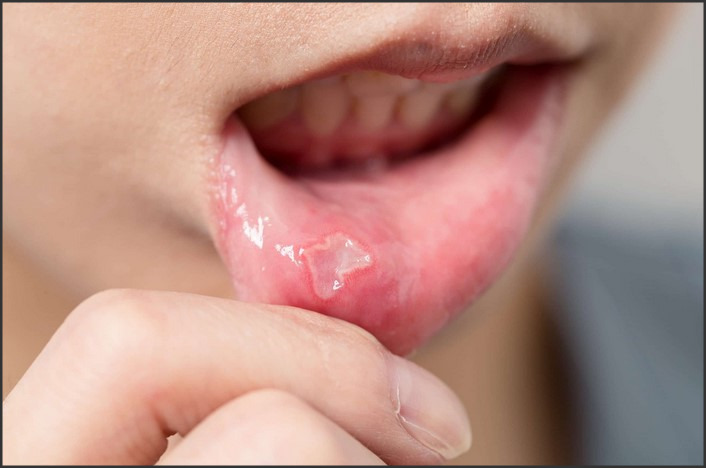 Canker sores are small, painful ulcers that can develop inside the mouth. They are not contagious and can affect anyone, although they are more common in adolescents and young adults. Canker sores can be caused by a variety of factors, including stress, certain foods, and vitamin deficiencies. Fortunately, there are several ways to prevent and treat canker sores, including avoiding certain foods, taking vitamin supplements, and using soothing treatments. In this article, we will discuss the causes, prevention, and soothing treatments for canker sores in the mouth.
Canker sores are small, painful ulcers that can develop inside the mouth. They are not contagious and can affect anyone, although they are more common in adolescents and young adults. Canker sores can be caused by a variety of factors, including stress, certain foods, and vitamin deficiencies. Fortunately, there are several ways to prevent and treat canker sores, including avoiding certain foods, taking vitamin supplements, and using soothing treatments. In this article, we will discuss the causes, prevention, and soothing treatments for canker sores in the mouth.
Exploring the Causes of Canker Sores in the Mouth: What You Need to Know
Canker sores are a common and often painful condition that can affect the mouth. While the exact cause of canker sores is not known, there are several factors that may contribute to their development. Understanding these potential causes can help you take steps to reduce your risk of developing canker sores.
One of the most common causes of canker sores is stress. Stress can weaken the immune system, making it more difficult for the body to fight off infection. Additionally, stress can cause changes in the body’s chemistry, which can lead to inflammation and irritation in the mouth.
Another potential cause of canker sores is a deficiency in certain vitamins and minerals. A lack of vitamin B-12, iron, zinc, and folic acid can all contribute to the development of canker sores. Eating a balanced diet and taking a multivitamin can help ensure that you are getting the necessary nutrients to prevent canker sores.
Injury to the mouth can also lead to canker sores. Biting the inside of the cheek, brushing the teeth too hard, or using a toothbrush with hard bristles can all cause irritation and inflammation in the mouth, leading to canker sores.
Certain foods can also trigger canker sores. Foods that are acidic, spicy, or contain a lot of sugar can irritate the mouth and lead to canker sores.
Finally, certain medical conditions can increase the risk of developing canker sores. These include celiac disease, Crohn’s disease, and HIV/AIDS.
By understanding the potential causes of canker sores, you can take steps to reduce your risk of developing them. Eating a balanced diet, managing stress, and avoiding injury to the mouth can all help prevent canker sores. If you are concerned about your risk of developing canker sores, talk to your doctor for more information.
Preventing Canker Sores in the Mouth: Tips and Strategies for Avoiding Painful Sores
Canker sores are a common and painful condition that can affect the mouth. They are small, shallow ulcers that can cause discomfort and interfere with eating and speaking. Fortunately, there are several strategies that can help to prevent canker sores from occurring.
First, it is important to maintain good oral hygiene. Brushing and flossing regularly can help to remove bacteria and food particles that can cause irritation and inflammation. Additionally, using a soft-bristled toothbrush and a fluoride toothpaste can help to reduce the risk of canker sores.
Second, it is important to avoid foods that can irritate the mouth. Foods that are acidic, spicy, or salty can cause irritation and inflammation. Additionally, it is important to avoid foods that are sharp or hard, such as chips or popcorn, as these can cause cuts or abrasions in the mouth.
Third, it is important to manage stress. Stress can weaken the immune system, making it more difficult for the body to fight off infections. Additionally, stress can cause inflammation in the mouth, which can increase the risk of canker sores.
Finally, it is important to get enough rest. Lack of sleep can weaken the immune system and make it more difficult for the body to fight off infections. Additionally, it can cause inflammation in the mouth, which can increase the risk of canker sores.
By following these tips and strategies, it is possible to reduce the risk of canker sores in the mouth. Maintaining good oral hygiene, avoiding irritating foods, managing stress, and getting enough rest can all help to prevent canker sores from occurring.
Conclusion
In conclusion, canker sores in the mouth can be a painful and uncomfortable experience. While the exact cause of canker sores is unknown, there are certain triggers that can increase the risk of developing them. To prevent canker sores, it is important to practice good oral hygiene, avoid certain foods and drinks, and reduce stress. If a canker sore does develop, there are several soothing treatments that can help to reduce the pain and discomfort.